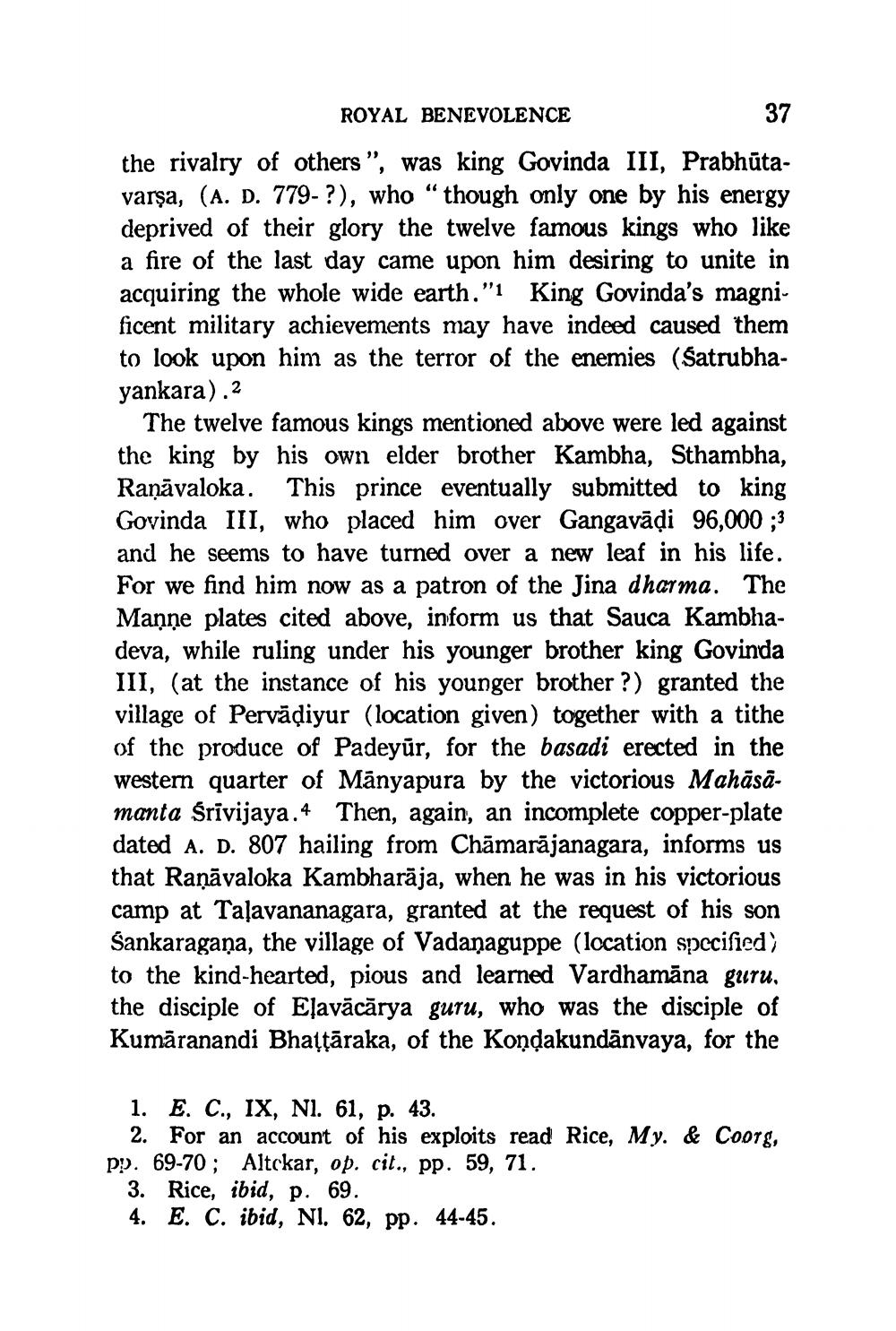________________
37
ROYAL BENEVOLENCE the rivalry of others ”, was king Govinda III, Prabhūtavarşa, (A. D. 779-?), who " though only one by his energy deprived of their glory the twelve famous kings who like a fire of the last day came upon him desiring to unite in acquiring the whole wide earth."1 King Govinda's magnificent military achievements may have indeed caused them to look upon him as the terror of the enemies (Satrubhayankara).
The twelve famous kings mentioned above were led against the king by his own elder brother Kambha, Sthambha, Raņāvaloka. This prince eventually submitted to king Govinda III, who placed him over Gangavādi 96,000 ;3 and he seems to have turned over a new leaf in his life. For we find him now as a patron of the Jina dharma. The Manne plates cited above, inform us that Sauca Kambhadeva, while ruling under his younger brother king Govinda III, (at the instance of his younger brother ?) granted the village of Pervādiyur (location given) together with a tithe of the produce of Padeyūr, for the basadi erected in the western quarter of Mānyapura by the victorious Mahāsāmanta Srivijaya.4 Then, again, an incomplete copper-plate dated A. D. 807 hailing from Chāmarājanagara, informs us that Raņāvaloka Kambharāja, when he was in his victorious camp at Taļavananagara, granted at the request of his son Sankaragaņa, the village of Vadanaguppe (location specified) to the kind-hearted, pious and learned Vardhamāna guru, the disciple of Eļavācārya guru, who was the disciple of Kumāranandi Bhațţāraka, of the Kondakundānvaya, for the
1. E. C., IX, NI. 61, p. 43.
2. For an account of his exploits read Rice, My. & Coorg, pp. 69-70; Altckar, op. cit., pp. 59, 71.
3. Rice, ibid, p. 69. 4. E. c. ibid, NI. 62, pp. 44-45.




